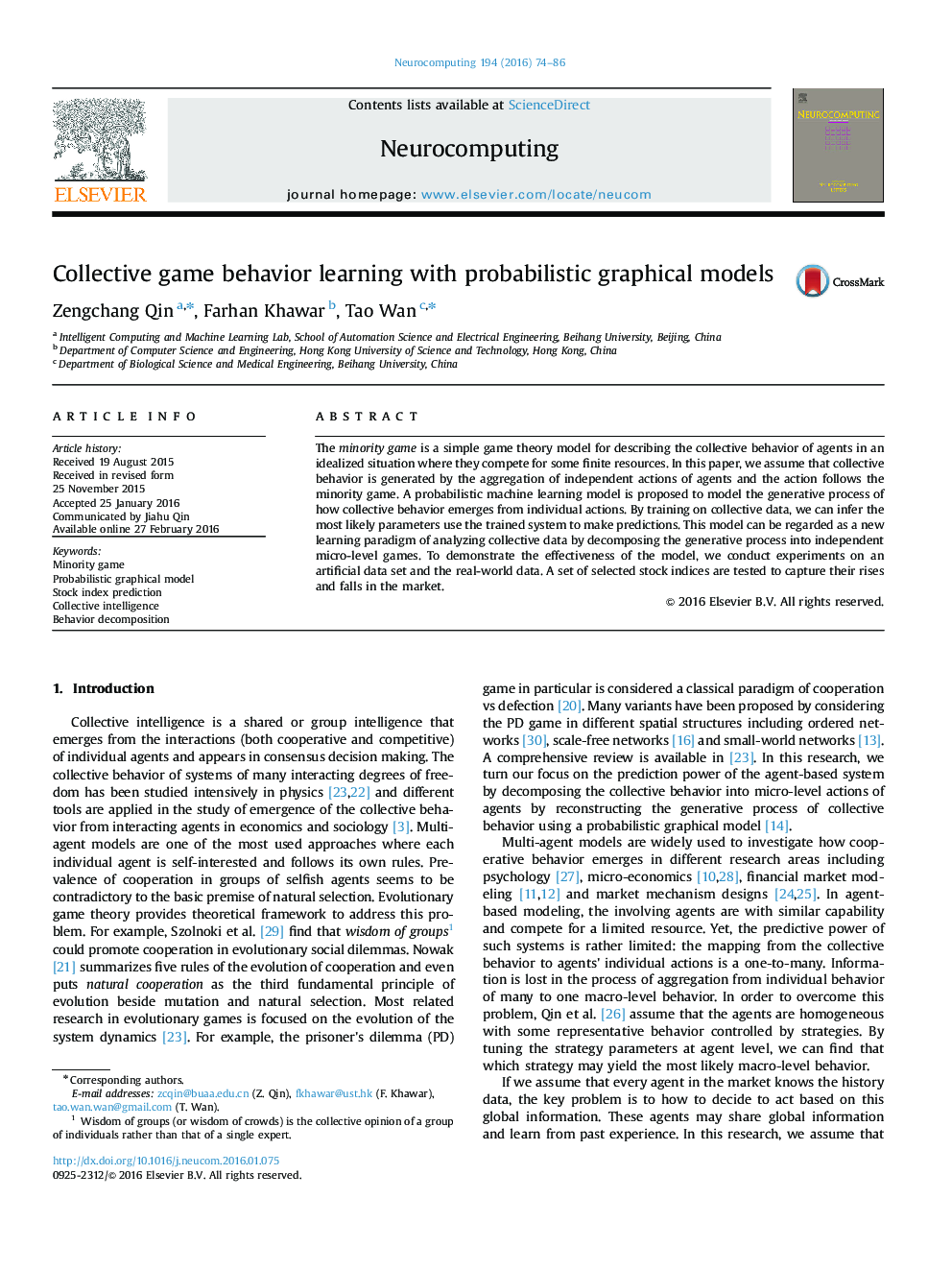| Article ID | Journal | Published Year | Pages | File Type |
|---|---|---|---|---|
| 408296 | Neurocomputing | 2016 | 13 Pages |
The minority game is a simple game theory model for describing the collective behavior of agents in an idealized situation where they compete for some finite resources. In this paper, we assume that collective behavior is generated by the aggregation of independent actions of agents and the action follows the minority game. A probabilistic machine learning model is proposed to model the generative process of how collective behavior emerges from individual actions. By training on collective data, we can infer the most likely parameters use the trained system to make predictions. This model can be regarded as a new learning paradigm of analyzing collective data by decomposing the generative process into independent micro-level games. To demonstrate the effectiveness of the model, we conduct experiments on an artificial data set and the real-world data. A set of selected stock indices are tested to capture their rises and falls in the market.
